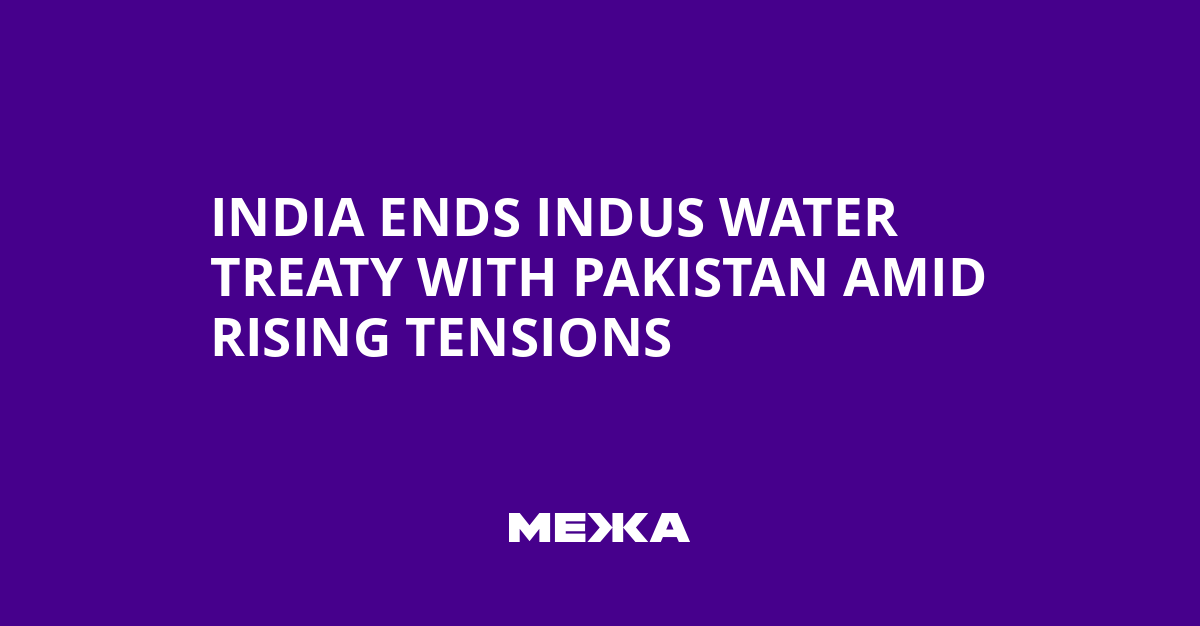The Government of India has decided not to renew the agreement with Pakistan regarding the Indus River, which was terminated following the escalation of the conflict between the two countries in April 2025. This information was confirmed by the Reuters agency.
Amit Shah, India’s Minister of Home Affairs, stated that the agreement “will never be restored.” He also noted that India plans to redirect the water that previously flowed to Pakistan to the state of Rajasthan by constructing a new canal.
“We will divert the water that flowed to Pakistan to Rajasthan by building a canal. Pakistan will be deprived of the water it unjustly received.”
– Amit Shah
The Ministry of Foreign Affairs of Pakistan emphasized that the agreement on the use of the Indus River waters does not allow for unilateral withdrawal, and its violation is considered an act of war.
The Indus Waters Treaty, signed in 1960 with the mediation of the World Bank, regulates the distribution of water resources between India and Pakistan. According to the agreement, India controls the waters of the three eastern rivers – Sutlej, Beas, and Ravi, while Pakistan controls the western rivers Indus, Jhelum, and Chenab.
In 2023, India announced its intention to review its participation in the treaty, accusing Pakistan of abuses. Since then, relations between the countries regarding water resources have remained tense.
Escalation of Tensions Between India and Pakistan
On April 22, 2025, at a resort near Pahalgam in Indian Kashmir, armed individuals killed at least 26 tourists, most of whom were Indian. The attack was claimed by the group The Resistance Front (TRF), which accused India of demographic changes in Kashmir. Pakistan condemned the attack and denied any involvement.
The following day, April 23, Indian Prime Minister Narendra Modi convened the National Security Council, after which India suspended visa issuance to Pakistanis, closed the Attari-Wagah border crossing, and halted the Indus Waters Treaty. On April 24, India cut off the flow of the Indus River water to Pakistan, which Islamabad called “an act of war.”
On April 30, Pakistan announced that India was preparing an attack, closed its airspace to Indian airlines, suspended trade, and recalled its diplomats.
On May 6, explosions were heard in Pakistan and Kashmir. India reported an attack on nine “terrorist infrastructure” targets as part of Operation Sindhur. Pakistan called this “an act of war” and asserted its right to respond.
Pakistan’s Defense Minister denied India’s claims that the airstrikes targeted military sites, emphasizing that civilian facilities were affected.
On May 10, U.S. President Donald Trump announced that an agreement had been reached between India and Pakistan to cease fire, although explosions from both sides continued.
Kashmir is divided between two Indian states – Kashmir and Jammu – as well as the autonomous Pakistani province of Azad Kashmir (Free Kashmir). Part of the region is controlled by China. The borders between the three countries are not officially recognized, as India and Pakistan both claim the entire Kashmir region and have been in conflict since 1947.
